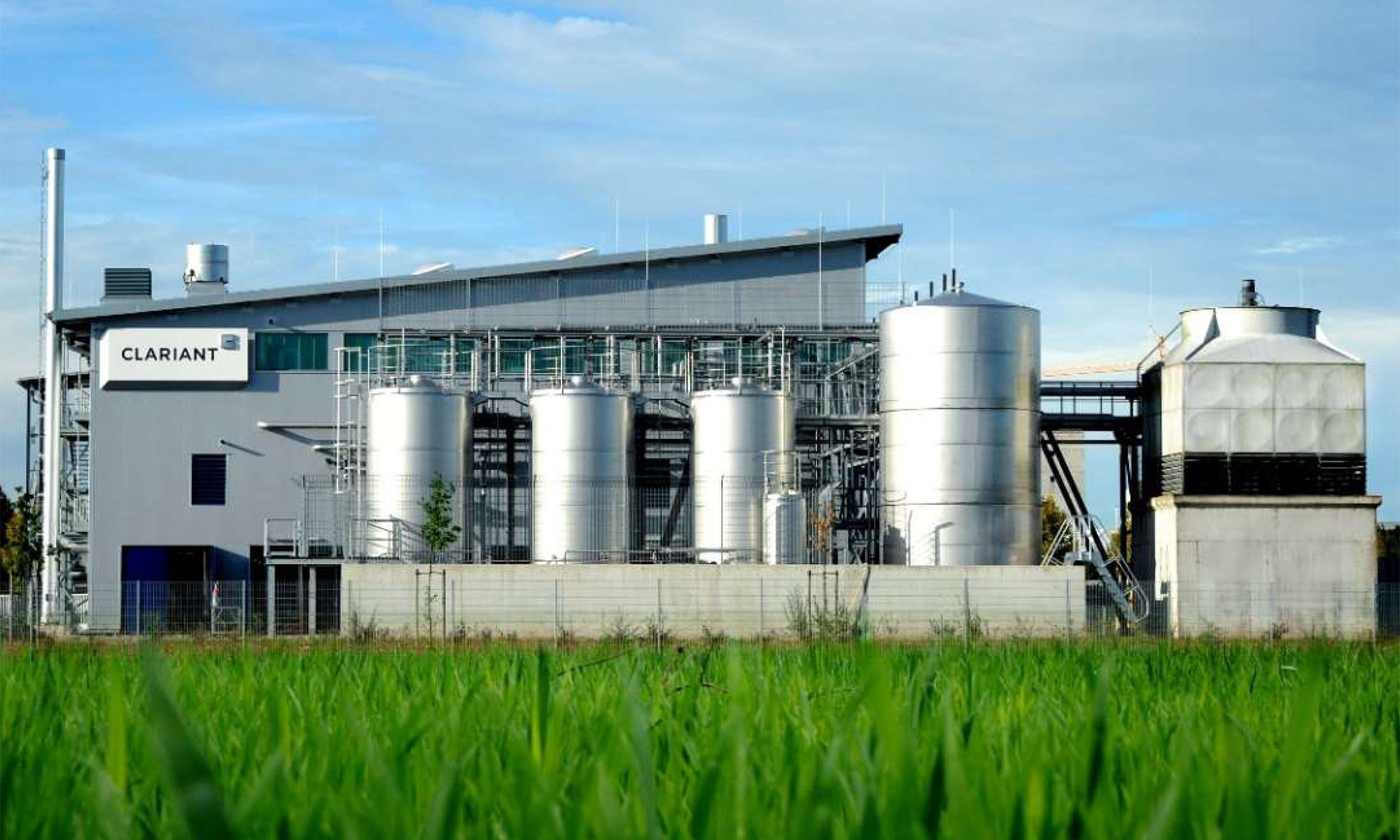Clariant has succesfully conducted tests on approximately 30 tons of miscanthus provided by INA, Croatia’s leading oil and gas company.
INA is a consortium member of the publicly funded project “GRowing Advanced industrial Crops on marginal lands for biorEfineries” (GRACE www.grace-bbi.eu). The GRACE project has received funding from the „Bio-based Industries Joint Undertaking“(BBI JU) under the European Union’s Horizon 2020 research and innovation programme. The consortium consists of 22 partners from universities, the agricultural sector and the industry.
The aims and objectives of the project are to optimize various miscanthus value chains, to produce sustainable products with a strong market potential and to develop miscanthus as a sustainable feedstock resource for cultivation on marginal, contaminated and abandoned land. The plant grows rapidly over 15-20 years as a permanent crop, has a low mineral content and offers a high yield per hectare. Pesticides and fertilizers are not required on a yearly basis, which further adds to miscanthus’ ecological benefits.
Succesful conversion
Against this background, Clariant was asked by the GRACE consortium to run tests of miscanthus as a feedstock for the production of lignocellulosic sugars and ethanol.
Final results prove that the sunliquid technology can successfully convert miscanthus biomass into lignocellulosic sugars and ethanol, confirming the benefits of the sugar process platform. Thanks to the flexible sunliquid process design, lignocellulosic sugars can be generated as an intermediate product that have the potential to serve as a building block for future production of biobased chemicals. Making further use of Clariant’s proprietary enzyme platform for feedstock specific enzymes can finally open up the full potential of this promising energy crop.
Further development
“These results are a push towards further development of a bio-based value chain and a circular bio-economy for further commercial conditions”, said Stjepan Nikolić, Operating Director of Refining and Marketing at INA.
Over the past seven years Clariant’s pre-commercial plant has also demonstrated cellulosic ethanol production on agricultural residues such as corn stover, sugarcane bagasse and straw as well as wheat, barley and rice straw. In the fall of last year, Clariant broke ground on its greenfield first-of-its-kind full-scale commercial cellulosic ethanol plant in Podari, the southwestern region of Romania. The new plant, with an annual production capacity of 50.000 tons, will be a flagship site, confirming competitiveness and sustainability of the sunliquid technology at commercial scale thus supporting Clariant’s sunliquid licensing business strategy.



